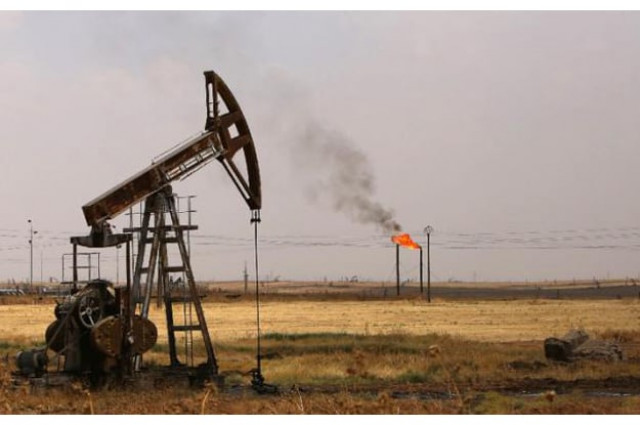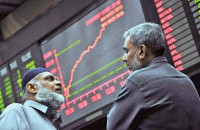Governments vie to lead oil and gas market
Saudi Arabia, Iran, US and Russia in race to drive energy prices

PHOTO: AFP
Experts suggest that global crude oil prices will continue to stay sharply lower for the next five years and wipe out some companies from the energy map as these cannot survive due to the higher exploration cost. In such a scenario, many ask who will dictate the energy market in the future.
There are expectations that some new players will emerge in the world market. During periods of low crude prices, Saudi Arabia has traditionally played a key role in the cartel of Organisation of Petroleum Exporting Countries (Opec). But now the flood of shale oil from the United States has shaken the group of oil-exporting countries.
Iran’s role has also not been impressive over the years in the face of international sanctions and it has lost several markets. Now that curbs have been lifted, it will try to recapture some of the lost places. A team of Pakistani officials visited the UK last month where they got a briefing from Oxford and Chatham House think tanks on the tumult in the oil market.
According to the think tanks, oil prices will remain unstable for the next five years and several energy companies will default. These companies, however, will survive if prices remain at $55 per barrel for the oil produced from conventional fields.
On the other hand, exploration companies producing shale oil will survive if oil prices stay at $80 per barrel. The think tanks estimate that prices are likely to stand below $60 for the next four to five years.
In this situation, the energy firms that will use efficient technologies will survive, as they will bear a low exploration cost. Therefore, they will have to focus on highly efficient technologies.
Iran, Saudi Arabia compete
With the removal of sanctions, Iran and Saudi Arabia will be vying to capture the global oil market. The US is also in the race. In the past, Riyadh lost its market share with the reduction in oil exports, but this time, it has not cut shipments and will continue to produce at current levels.
Owing to competition between the two rivals, prices will continue to remain unstable in coming years. Some are of the view that Iran has not been able to develop its oil fields for long due to sanctions and it will take few years to enhance production. This way it will not be playing an immediate role in the world market.
Switch to gas market
As gloom envelopes the crude market, different countries including the US will switch to gas exports. Even Russia that has been a major player in the oil market is now focusing on gas supplies and exploring new markets. It has already been exporting gas to Turkey and the European Union.
However, the US is seeking to minimise EU’s reliance on Russia and this is the reason why Moscow is looking for new markets. In the case of gas too, Iran cannot be ignored at it has vast deposits of this natural resource. In order to win contracts, EU companies have landed in Tehran, which is already supplying gas to Turkey and this route could be extended to Europe.
Who will be the leader?
Countries that survive the weak crude oil market will be able to take its control. Earlier, Opec had been driving crude prices, but the US shale oil glut broke its monopoly. Now, the US will lead the energy-exporting countries and focus on use of efficient technology to cut the exploration cost with an aim to become a leader in the energy market.
It has also started export of liquefied natural gas (LNG). However, due to low prices, some projects have been suspended which can be revived as soon as prices cross $60 per barrel.
The question that arises is who will dictate the energy market in the future. Pakistani officials are of the view that the US will be unable to drive the LNG market, pointing out that several other suppliers like Russia, Australia and Malaysia are emerging. Pakistan is in talks with Malaysia, Oman and Russia to strike LNG deals.
Pakistan’s energy situation
According to the UK-based think tanks, Pakistan’s oil and gas regulatory framework has developed as it has emerged as a serious player in the LNG market by signing a long-term deal with Qatar. They say the country has secured a better contract compared to India’s LNG deal with Doha.
The writer is a staff correspondent
Published in The Express Tribune, March 28th, 2016.
Like Business on Facebook, follow @TribuneBiz on Twitter to stay informed and join in the conversation.



















COMMENTS
Comments are moderated and generally will be posted if they are on-topic and not abusive.
For more information, please see our Comments FAQ